SPECIAL – Reports reveal collapse in education for traditional communities in Pará
15 de April de 2025
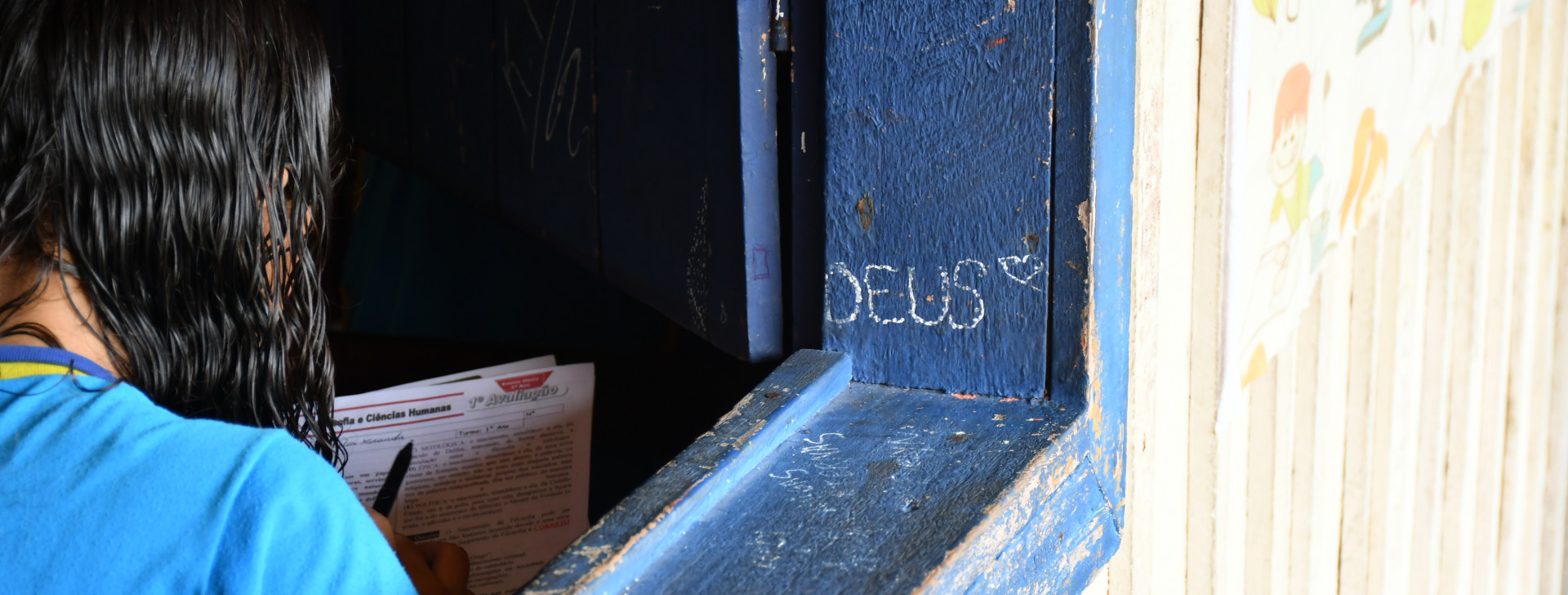
By João Paulo Guimarães – Special for Cenarium
BELÉM (PA) – “I failed several subjects, but I still moved up a year. How am I supposed to do well in the Enem like this?” The outcry from a student in the Modular Teaching System (Some), who prefers to remain anonymous, sums up the crisis in public education in Pará, where the lack of resources in riverside schools compromises learning. Documents, audio recordings, videos, and images compiled by teachers, students, and parents and sent to CENARIUM MAGAZINE reveal an alarming scenario: manipulation of data from the Basic Education Development Index (Ideb), structural precariousness, repression of educators, moral harassment, and interference in the Office of the Inspector General.
The severity of the situation gained national attention with the recent Indigenous occupation of the headquarters of the Pará State Secretariat of Education (Seduc-PA), highlighting the fragility of teaching in traditional and native communities. The student continues her testimony: “Rural areas don’t have the same structure as the capital cities. Those studying in private schools are years ahead,” she said, acknowledging the financial motivation behind school attendance. “Many have returned to school just because of the ‘Pé de Meia’ [financial incentive], not to graduate. If they really wanted us to have a good education, they wouldn’t let us pass without learning,” she said.
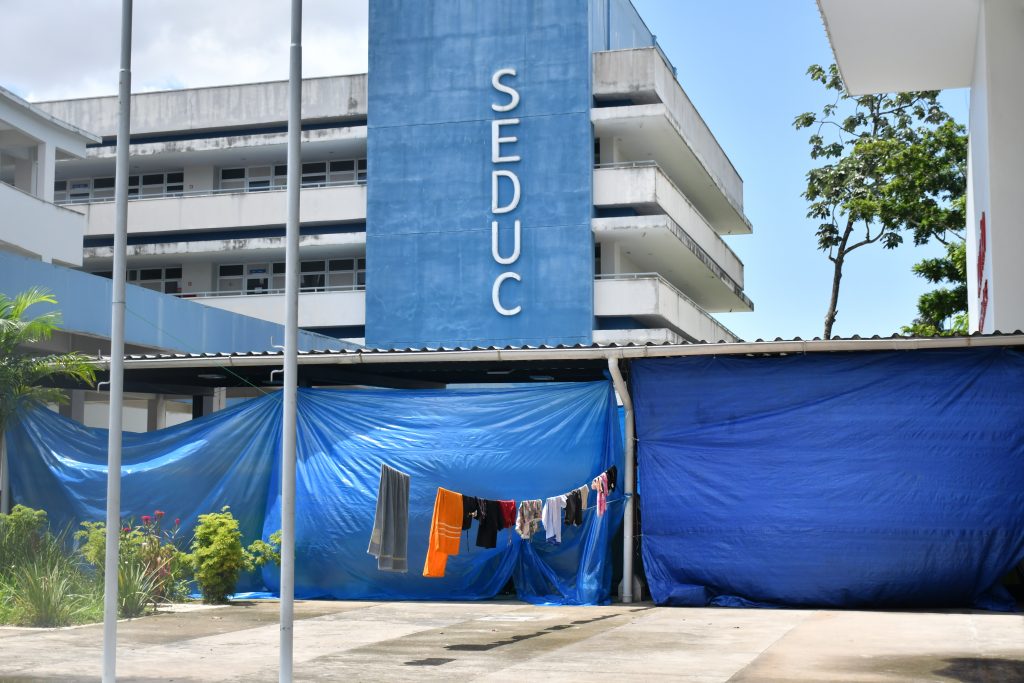
The daughter of parents who didn’t finish primary school, she sees education as a fragile escape: “My parents live off farming, and I don’t want that, but the education here doesn’t prepare me. The cycle (which promotes students automatically) is a complete loss. We are being deprived of the knowledge we should have,” she added.
The girl reveals her aspirations without forgetting the hardships. “I want to become a professional, but I know it’s going to be tough. I didn’t have teachers for all subjects. That already shows in my grades,” she concluded.
Automatic Promotion
The policy of automatic promotions in Pará’s public schools lays bare the State’s neglect of education. A teacher from Monte Alegre, a municipality 900 km from the capital Belém, describes what it’s like to teach in the state of Pará. “We pretend to teach, students pretend to learn, and the government is happy with the skyrocketing Ideb results, without caring about the quality of education. We’re not allowed to fail students or mark them absent,” she says, also preferring to remain anonymous for fear of retaliation.
A mother of public school pupils in the State, a 34-year-old domestic worker, requested anonymity and shared that her children struggle with basic literacy. “When my daughter moved up to fifth grade, she couldn’t read, and when she advanced to sixth, she still couldn’t. But they promoted her anyway. My son was also held back twice, but we found it strange when he passed, because he couldn’t read or write either,” she reported.
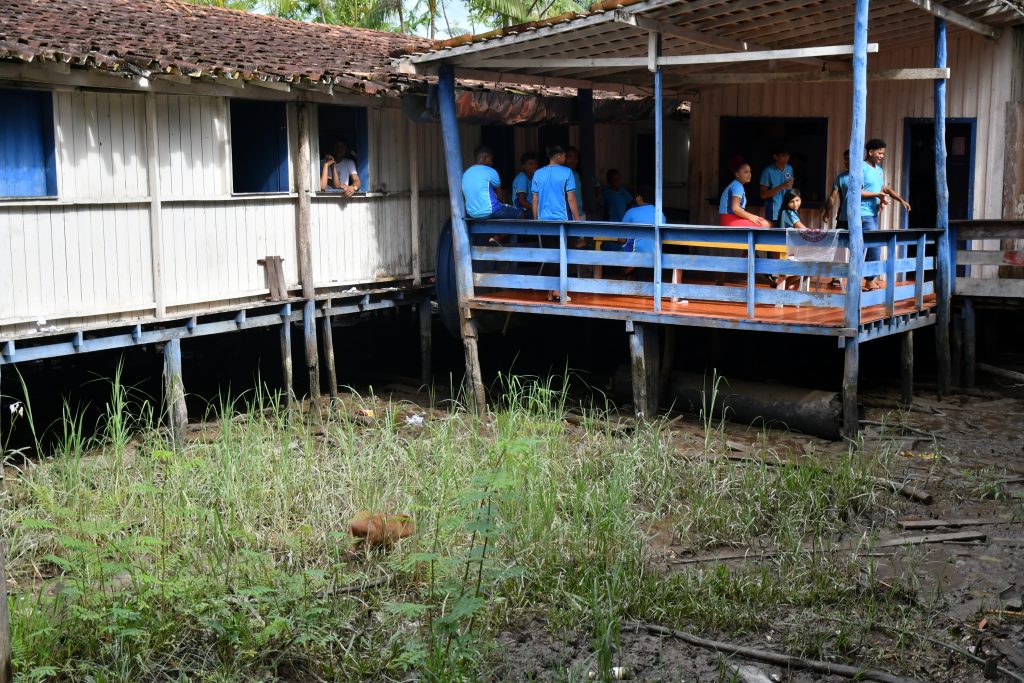
Another student from a riverside school in Pará voiced concerns about the cycle system in secondary education, which promotes students regardless of performance. “Even though I missed an entire year, I still passed. I don’t think that’s right,” she criticised, highlighting how the lack of academic demands demotivates students and harms their preparation for the future.
“At university, they’re going to expect knowledge I never got at the base level.” The young woman also points to a lack of infrastructure: “We don’t have a computer lab, library, or enough teachers.” For her, the government prioritises financial incentives, such as Pé de Meia, over actual investment in education. “They should be using that money on books and technology, not just paying students to show up,” she said.
Asked about her prospects, she identifies and acknowledges her barriers. “I come from a completely different background than those in private schools. Competing will be difficult,” she admits.
She reports that, in her class of 45 students, only three passed the Enem in 2023. “That has to change,” she urges. The daughter of small-scale farmers, she plans to attend a public university, but according to her, the State would rather “promote than educate.”
Cycle System
A document taken from the website of the State Secretariat of Education (Seduc-PA) shows that a model of continuous progression is in place, in which students are automatically promoted in certain school years, regardless of academic performance. This means that failing only occurs in specific years, while in the others, students progress automatically.
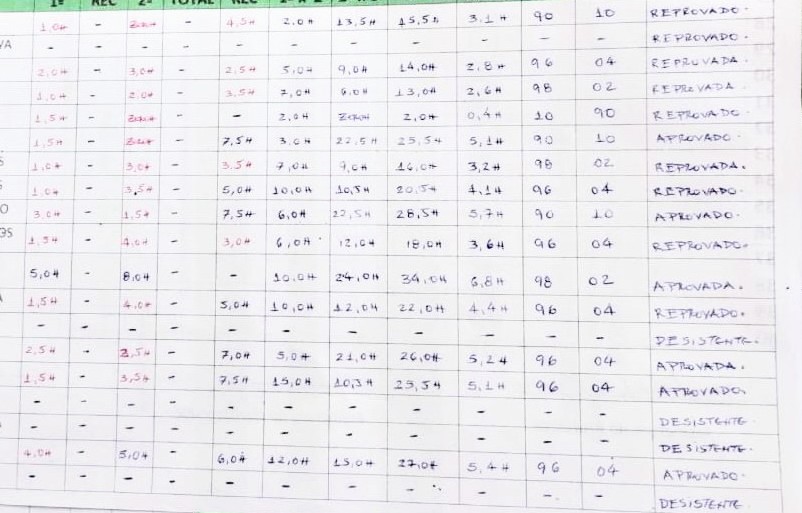
In this model, primary and secondary education are divided into learning cycles, rather than traditional school years. Within each cycle, students are assessed continuously. Failing only occurs in the final year of the cycle. In the intermediate years, promotion is automatic, the document explains.
Conflicts in Education
A teacher working in the region of Paragominas, 309 km from Belém, reports how the lack of classes has become a structural issue. The riverside education worker provided a document to the report, showing the damage suffered by students in the municipality within the Regional Directorate of Mãe do Rio. “The number of students who didn’t have these subjects throughout the whole year,” said the professional, referring to students who were approved without attending certain classes.
According to him, Seduc’s solution to cover up this failure has been the imposition of online exams and pressure on teachers to pass students without any pedagogical criteria. “They are passed compulsorily, and since this is being denounced, they have now come up with this online exam to legitimise the farce,” the teacher reported.
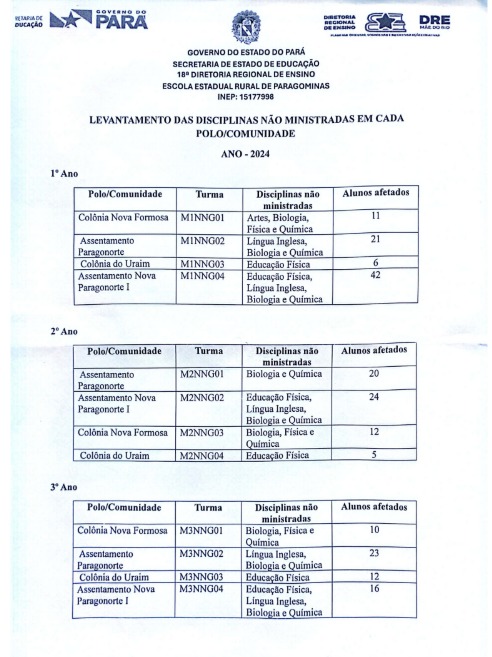
This policy of forced approvals has caused outrage among teachers, who are called to class council meetings solely to ratify decisions already made. “They called us to sign a document agreeing to pass students who didn’t take these subjects, with nothing, no exams, nothing at all,” the educator revealed.
Faced with the imposition, the teachers agreed to approve only the third-year students, so they could enter the job market or private universities. “It was very much against our will, but for the first and second years, we said no – they will have to take those subjects,” he emphasised.
The teacher’s recommendation is that his colleagues seek official documents to expose the real situation of the public education network. “It is evidence that the State is neglectful, derelict in duty, and negligent with the students,” he concluded.
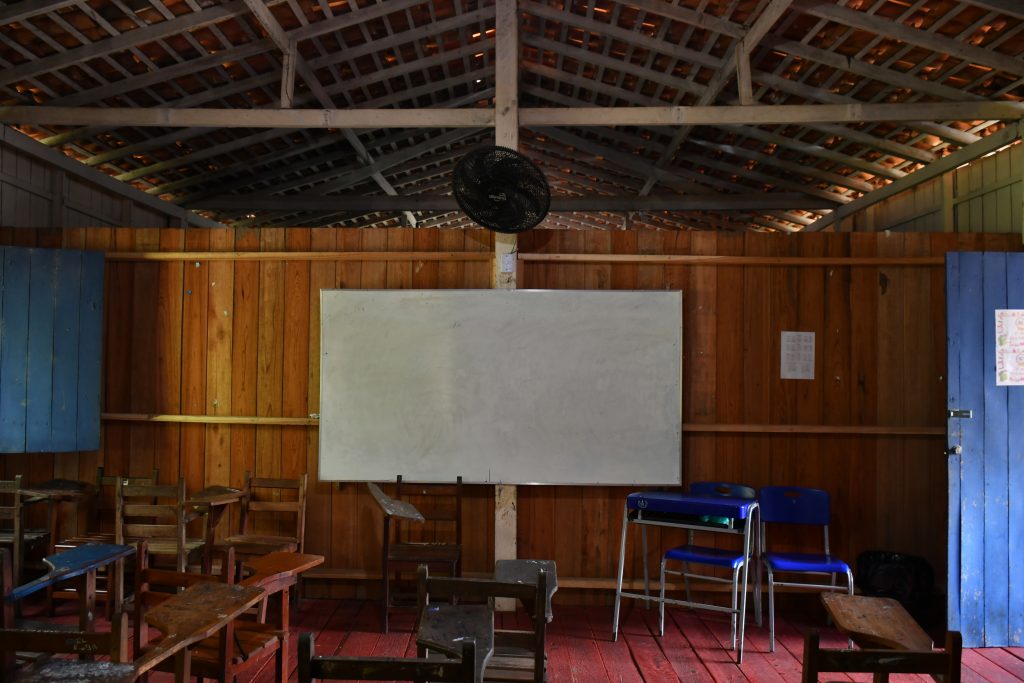
Parallel Reality
A symbol of resistance in education in Pará, the Escola Municipal Bom Jesus I, located in Boca do Rio Caji, in the municipality of Igarapé-Miri, 232 km from Belém, experiences a different reality, thanks to the Modular Education Organization System (Some), a system that ensures secondary education in areas far from municipal centres.
The impact of Some on the community is profound and can be seen in the path of former students, many of whom now work in the municipal education network itself. Even after 37 years, the system remains essential for education in Igarapé-Miri.
“We have teachers today, in the municipal school, who were students of Some, as well as the pedagogical coordinator and even the school principal. This shows the impact the system has on professional training in the region,” highlights a teacher who prefers not to be identified.
Former students of the system also occupy relevant positions in the city, such as the former Secretary of Health, who pursued a career in nursing. “Some is not just a teaching model, but a reference for the entire population. Many who came through here now help to transform the educational reality of the municipality,” emphasises the teacher.
Escola Bom Jesus serves three secondary school classes, with 38 students in the first year, 44 in the second, and 38 in the third. In a school project that portrays students’ dreams and life plans, the diversity of aspirations is evident. For some, a simple computer course could be the key to securing a job and ensuring financial security.
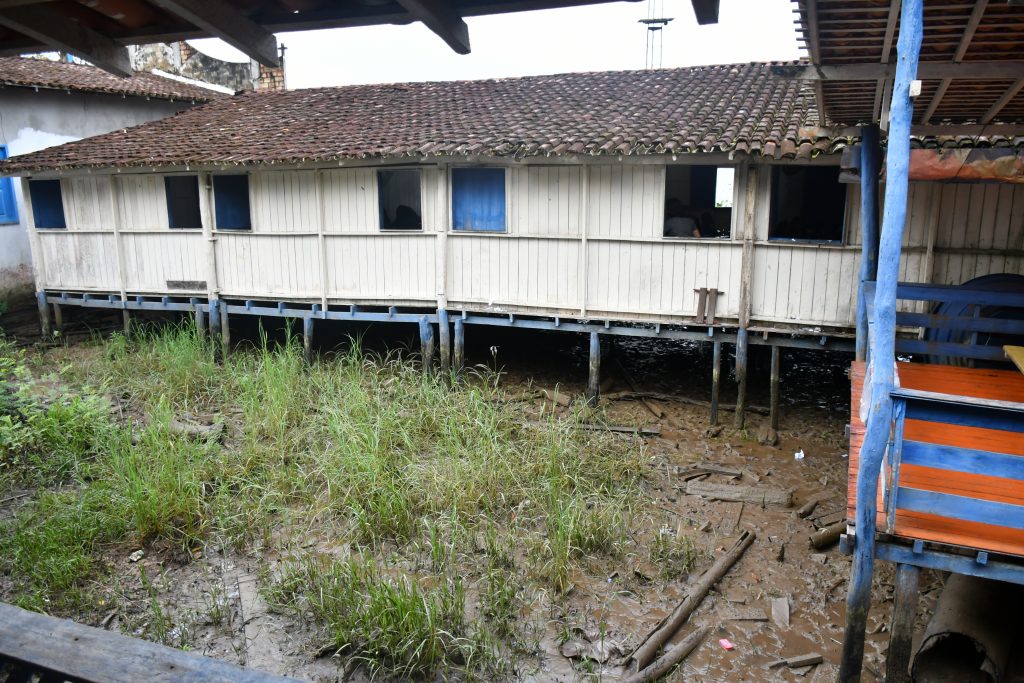
One student expresses her desire to become a lawyer, not only to secure her rights, but to help other people in difficulty. In her statement, she writes: “I want to become a good lawyer to help my family.”
Another student expresses his dream of travelling to the United States, to visit tourist attractions, parks, museums, and experience the local cuisine. “I want to visit each of these places,” he reveals.
Higher education emerges as a path to change. One female student speaks of her admiration for a technology university located in the municipality of Abaetetuba, just 43.8 km from Igarapé-Miri. “I’ve always wanted to study at that university. I want to study hard to get a scholarship.”
Obstacles
The social reality of the municipality is one of the obstacles to achieving dreams like these. Stories of violence in nearby communities — such as decapitations due to disputes between criminal factions — make teachers afraid, but they still do not abandon their posts in schools like Bom Jesus I, which suffers from a dilapidated infrastructure.
One teacher recounts that he taught in January 2023, in Vila Menino Deus, on the Anapu River, when a young man from a local gang was murdered after a fight at a party in Baixo Anapu, 692 km from the capital. Two weeks later, his killers invaded the house of the perpetrator, burned the body, and, in a ritual of revenge, decapitated the corpse in front of the terrified community. “Truth be told, we only talk about it outside of there. Even though it’s been two years, hardly anyone wants to speak about it,” he says.
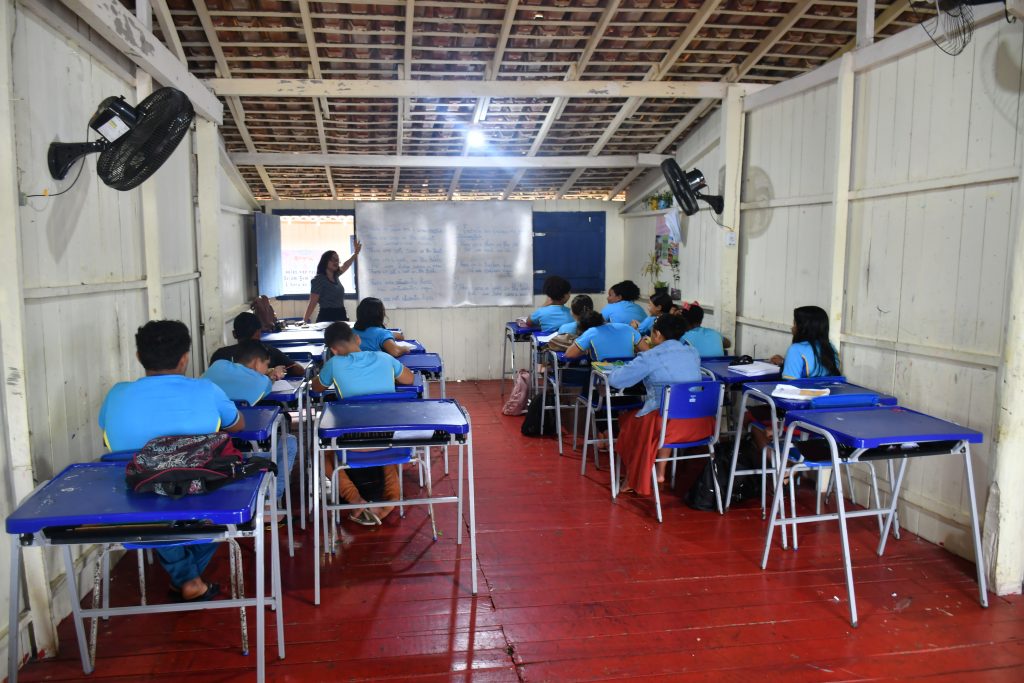
The building where classes are held looks abandoned. Students walk among rotten floorboards, exposed electrical wiring, and old, dirty roofing tiles that appear to be the originals from 1998.
Students attend classes in wooden-walled rooms with no insulation. While older student groups take a mock exam during the rain — with leaks, dark rooms, and intense heat — children between the ages of 5 and 10 sing in the neighbouring classroom. There is also the noise of boats, outboard motors, and pigs wandering through the mud beneath the stilt school.
In the three days we followed the routine of students and teachers of Some in Igarapé-Miri, the school meal was always the same: a mug of hot rice porridge with açaí, which could be refilled to satisfy hunger.
The topic was featured on the cover and as a special report in the latest edition of CENARIUM MAGAZINE. Click here to read the full content.


